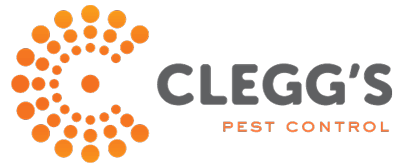Honeybees in North Carolina
Honeybees are the state insect of North Carolina, and for good reason. These buzzing insects are an integral part of our ecosystem, helping to pollinate crops and the local flora that keeps North Carolina lush and green. On top of that, the honey that they produce is a staple in many families’ diets, used to add natural sweetness to countless recipes from a variety of cultures. Honey even has natural anti-inflammatory properties as well as other health benefits.
The only downside of honeybees is their ability to sting. Combined with their protective nature, this means that caution should be taken around beehives, especially when there are allergies involved. Read on to find out more about honeybees, including how to identify them, their behavior, and what you should do if you discover a honeybee infestation on your property.
Identifying Honeybees
Honeybees are identified by their brown and furry bodies and are commonly accompanied by yellow and black markings along the tail. Most honeybees are about half an inch long on average, which is shorter than bumblebees. The average worker honeybee has an average lifespan of 5 to 8 weeks while the queen often lives for around 3 to 4 years.
While honeybees are usually harmless, they can sting you whenever they feel threatened. Unlike wasps, which sting freely, a sting from a honeybee means that the stinger will be ripped off the bee post-sting, resulting in the bee’s death.
Signs of a Honeybee Infestation
Since honeybees are social creatures, they live with the rest of their colony inside hives. One sign to look out for in your home is the hive itself. They are often found hanging in trees, along the roofs of houses, and on top of other high structures. However, they can also be found underground in tunnels or pathways. Make sure you look around your entire home for the hive, individual bees, or groups of bees circling any open produce.
Honeybee Prevention and Treatment
An important part of preventing a honeybee infestation is removing any open food or drink from exposure. Whether it’s fruits, vegetables, or leftover soda cans, these foods and drinks can attract honeybees and lead them into your home. It’s also a good idea to clean trash or recycle bins that have residual food or crumbs in them.
However, if you already have an infestation inside your home, your best option is to contact a local beekeeper. These trained professionals can remove honeybees from your property safely and humanely, preserving the colony and their ability to produce honey.
Protect North Carolina’s Natural Beauty with Clegg’s Pest Control
Clegg’s is committed to helping North Carolina residents feel safe and protected at home. That’s why we offer services like mosquito control, nuisance wildlife control, and mole control. However, Clegg’s Pest Control does not service honeybees – if you’re dealing with honeybees on your property, be sure to call a professional beekeeper as soon as possible.
You deserve peace of mind on your own property – if you’re tired of dealing with a torn-up lawn or countless mosquito bites, call Clegg’s Pest Control for professional pest solutions.

